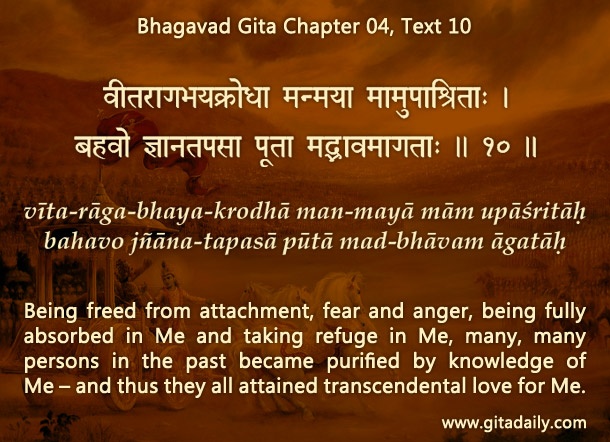Rising from the worldviews of desire despair and dread to the worldview of devotion
Opening our eyes to reality is not meant to fill us with dread and despair; it is meant to fill us with purpose and perspective.
In many cultures, there’s a common notion that thinking too much can be dangerous. The underlying idea is that if we ponder over fundamental questions like the meaning of life, we may end up frustrated and cynical. This cynicism can lead to inaction, as we conclude that everything is ultimately meaningless. We may see life as futile, given that death erases all, and refuse to join the blind pursuit of worldly goals that others engage in.
Alternatively, such intense thinking might evoke dread. This dread could drive us to feverishly pursue spiritual reality while abandoning this world. Viewing the material realm as treacherous and filled with illusions, we might focus only on protecting ourselves from its entanglements and securing our liberation.
Faced with these two extremes—despair or dread—many people consider the default worldview of desire more practical. This perspective involves avoiding deep reflection and instead centering life around worldly pursuits.
Three responses to the world
The Bhagavad Gita (4.10) outlines these three responses to the world:
- Desire (rāga): A craving for material possessions and pleasures.
- Dread (bhaya): A fear-driven detachment from the material world.
- Despair (krodha): Existential frustration that leads to cynicism and anger.
The Gita encourages going beyond these three responses to embrace devotion.
Devotion: A perspective of enrichment and empowerment
Devotion helps us see that a higher divinity governs the world, no matter how chaotic it may seem. By connecting with this divine reality, we receive two distinct blessings: enrichment and empowerment.
Enrichment: Internally, devotion connects us with a higher source of satisfaction that raises us above worldly tribulations. This inner fulfillment reduces our dependence on the material world for pleasure and meaning.
Empowerment: Externally, devotion provides us with a higher purpose and broader perspective. We realize we can act as instruments of the divine, contributing to a larger plan for the world’s benefit.
While devotion’s enrichment might lead some to turn away from the world, it is distinct from the despair that drives others to detach. Devotion, as described in the Bhagavad Gita, is not just world-transcending but also world-transforming. It inspires us to approach life with purpose, knowing that we are part of a meaningful divine plan.
Balancing realism with optimism
Devotion offers a realistic view of the world. It acknowledges that the material realm is temporary and often treacherous, filled with illusions and exploitative behaviors. At the same time, it provides a constructive response to this reality. We may not eliminate all the world’s misery, but we can offer resources and guidance to those ready to transcend the worldviews of desire, despair, and dread. In doing so, we help others experience the enrichment and empowerment of devotion.
Summary:
Worldview of desire: Most people pursue material pleasures, centering their lives on acquiring and displaying worldly possessions.
Worldview of despair: Some thoughtful individuals, realizing the futility of material pursuits, view existence as meaningless.
Worldview of dread: Others fear the world’s treachery and focus solely on avoiding its entanglements.
Worldview of devotion: The Gita presents devotion as a higher perspective, where we recognize a divine plan and connect with it. This connection brings us inner satisfaction (enrichment) and inspires purposeful engagement with the world (empowerment).
Think it over:
Have you let yourself be defined by the worldview of desire? How has it rewarded you in terms of happiness and meaning?
Do you know someone who has adopted the worldview of despair or dread? How has it influenced their life?
How can you adopt the worldview of devotion more firmly and experience its dual blessings of enrichment and empowerment?
***
04.10 Being freed from attachment, fear and anger, being fully absorbed in Me and taking refuge in Me, many, many persons in the past became purified by knowledge of Me – and thus they all attained transcendental love for Me.


Leave A Comment